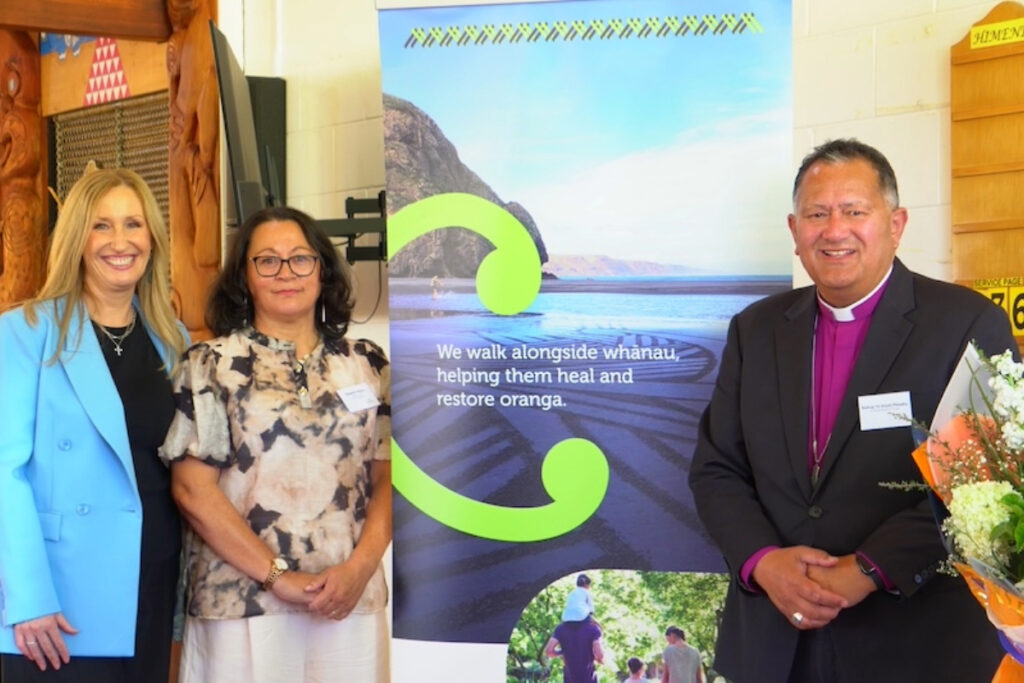Cultural Connection Key to Healing Whānau Wellbeing, Says Bishop Te Kītohi Pikaahu

The Right Reverend Te Kītohi Pikaahu, Bishop of Te Tai Tokerau and faith leader of the Mihingare (Māori Anglican Church) in Northland and Auckland, recently spoke about the profound importance of cultural connection at the launch of our Impact Strategy in Tāmaki Makaurau.
As the founding Chair of Te Whare Ruruhau o Meri Trust in 1992, Bishop Pikaahu has long championed the needs of whānau. “The Trust was established to address the complex challenges facing families. We recognised the critical role of Māori working with Māori to overcome family and sexual violence and other life difficulties,” he shared.
A passionate advocate for the Trust’s new Impact Strategy and its four pillars of change, Bishop Pikaahu sees it as a key milestone in the organisation’s growth. “Spirituality is central to the Māori Anglican Church and integral to Māori cultural identity and whānau wellbeing. Yet, many Māori have become disconnected from their culture. The Cultural Connection pillar emphasises the need to reconnect whānau with their wairuatanga and whakapapa, which is essential for restoring, healing, and strengthening whānau.”
He continued, “When you know where you belong and to whom you belong, positive change becomes far more attainable. Reconnecting with your culture teaches you the responsibilities you have to your whānau, which, in turn, fosters a sense of contribution and fulfilment. Most importantly, it helps you keep your whare and your whānau safe and resilient.”
Bishop Pikaahu emphasised that the challenges facing whānau are not only spiritual but also social, physical and economic, which is why the Trust’s work takes a holistic approach, addressing the whole person. “Our mahi is primarily focused on freeing whānau from violence. Once a person is spiritually free from violence, the physical issues can be addressed,” he explained.
He also highlighted the importance of the second Te Aorerekura Action Plan, which aims to reduce family and sexual violence in Aotearoa. “Minister Chhour’s speech gave us so much hope. Our new Impact Strategy is crucial to achieving these goals, as it empowers us to engage with whānau in a more authentic and meaningful way. Many whānau are suffering, and it’s vital to prioritise the wellbeing of our tamariki. The child is the most vulnerable member of the family, and by taking care of them, we ensure the future of our whānau.”
